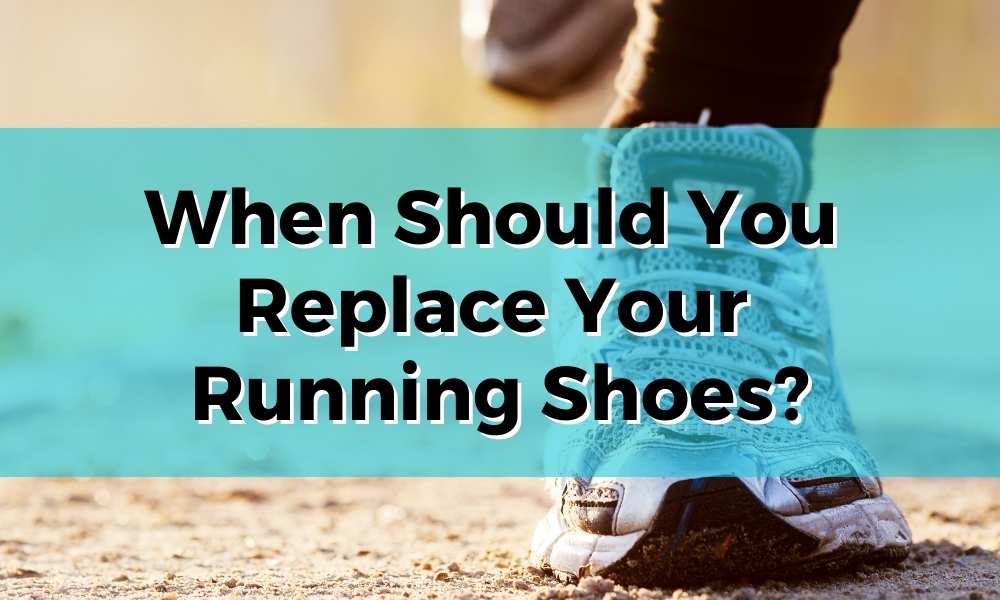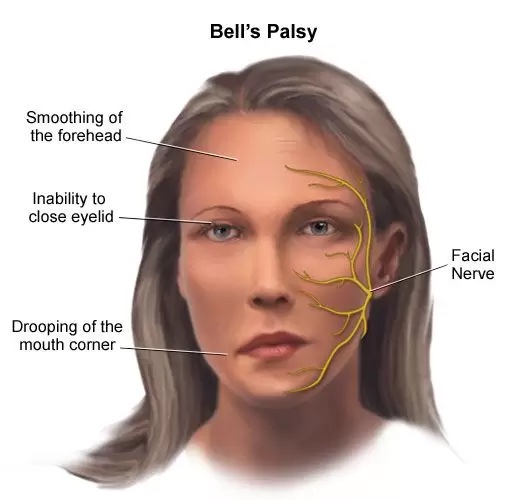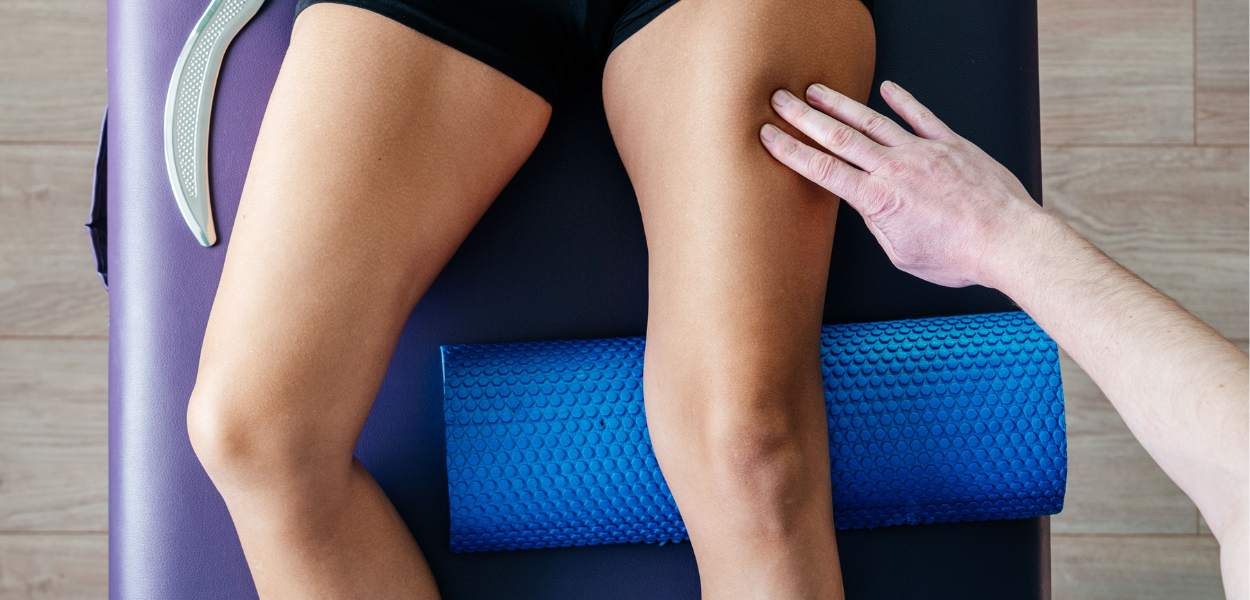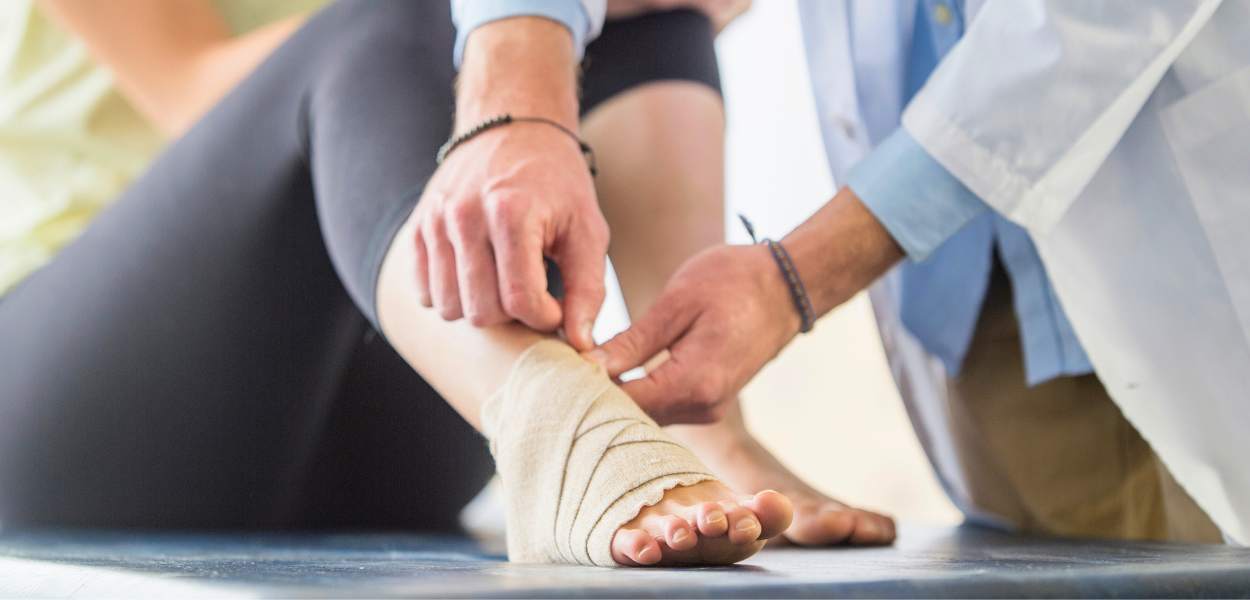
Should I Replace My Running Shoes?
Whether you are an avid runner training for a 10K, or a casual runner trying to maintain your health and fitness through running, you’ll always need a reliable pair of running shoes to help! The question is often asked. “How frequently should I replace my running shoes?”
Old running shoes can potentially increase the risk of injury. If your running shoes are worn out, you’ll need to replace them with a fresh new pair. In this article, we share the most important tell tale signs that it's time to change your running shoes.
First of all, make sure you are actually wearing RUNNING shoes!
If you do run on a regular basis, make sure that you wear shoes that are designed for running only. The cushioning, support and traction in running shoes are designed specifically for running performance and the high-impact stress generated from it.
Good running shoes will:
1) Cushion the midsole area of your foot from impact. Running shoes are constructed with a thicker heel to absorb impact
2) Support your foot arches, which is the area between your heel and the ball of your foot
3) Improve stability and reduce the risk of slipping or falling while running. Running shoes have a tread pattern on the sole that provides good traction on a variety of surfaces
4) Prevent running-related injuries
5) Reduce stress on the ankles, heel and toes
6) Improve your running performance
If you wear other types of shoes (such as tennis, basketball, cross-training shoes) when running, this may accelerate the breaking down of parts of the shoe that are not designed to cope with running.
Key Signs You Should Replace Your Running Shoes
All running shoes will wear out eventually. How quickly this happens is determined by your mileage, the surface you run on, body weight and foot type.
Here are some tips about when to replace running shoes:
1. Track your run mileage
Running shoes generally need to be replaced every 500 – 700 kilometers. If you run 20 kilometers a week, that equates changing your shoes every 5 to 8 months. If you run more per week, then you’ll need to replace your shoes more often.
2. Check for signs of wear and tear
Observe the mid-sole of your running shoes. Does it feel too soft and collapse easily under pressure? Does it appear wrinkled or compressed? Are your shoes bendier than they used to be?
If you said yes to any of the above, these are signs that it may be time to replace your running shoes.
3. You’re feeling new pains and aches
If you have been feeling some new aches and pains during or after your run, it may be time to change your shoes. Anything from soreness in your heels, ankles, knees to muscle aches may be caused by your old running shoes. The discomforts could be a sign that your shoes are no longer providing the necessary support or cushioning required.
4. Changes in the fit
If your running shoes feel unusually loose or tight, or if you notice any changes in the way they fit, it could be a sign that they have stretched or worn out over time. This can affect the stability of your feet and increase the risk of injury.
How to Make Your Running Shoes Last Longer
1. Wear them only when you run
You might be wearing your running shoes all day even when you’re not running as they are comfortable and lightweight. While this is perfectly fine, do note that the more you wear your running shoes for daily activities, the quicker they’ll wear. Walking does add mileage to your running shoes.
2. Keep your shoes clean
Give your shoes some tender loving care! Remove any dirt or mud and any stones after your run. If you need to wash them, hand-wash them rather than tossing them in the washing machine. Always air-dry your shoes. The high heat from a dryer will break down the material and soles of the shoes.
3. Have more than one pair and rotate them
If you run frequently, it may be a good idea to purchase at least one more pair of shoes instead of wearing the same pair for every run. This way your shoes have time to fully air dry and your feet can better adapt with different pairs of shoes.
4. Store your shoes properly
Storing your running shoes in a cool, dry place can help prevent moisture buildup, which can cause them to break down more quickly. Avoid leaving them in a hot car or damp area, and store them in a well-ventilated area away from direct sunlight.
Overall, running shoes are important for runners because they provide the necessary support, cushioning, traction, and comfort needed to perform at their best while minimizing the risk of injury.
If you notice any of the signs we've share in this article, it's probably a good idea to start shopping for a new pair of running shoes. Replacing your shoes on a regular basis can help you avoid pain and injury and keep you running comfortably and safely.
Need Running Advice? Contact Us Today!
At Prohealth Sports & Spinal Physiotherapy Centres, we offer running assessments that includes footwear analysis for runners of all experience levels. These assessments are designed for those who are interested in improving their running technique and performance.
Our physiotherapists are also here to help you if you have been experiencing any aches and injuries from running and other sports.
Working with a qualified and experienced physiotherapist, you will receive a detailed assessment to fully understand the root cause and identify areas requiring treatment. From there, we provide a range of manual therapies to help with your pain and/or develop a program to help to return to full function!
If you are interested, feel free to book a session with us!
For more information, contact us at +852 2530 0073, or email appt@sportsandspinal.hk.





